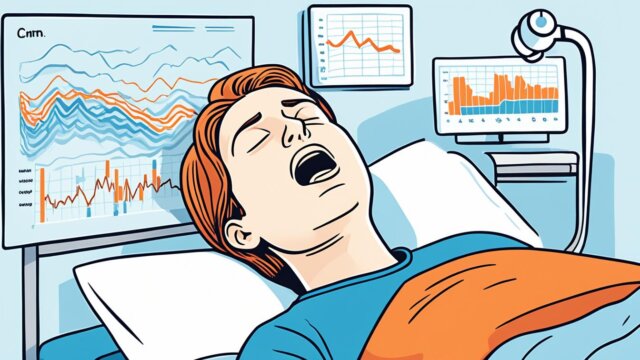FTC disclaimer: This post may contains affiliate links and we will be compensated if you click on a link and make a purchase.
Did you know that some asthma medications may cause side effects worse than the original symptoms they were designed to treat?
In the past few years, there has been a lot of controversy surrounding the safety of certain prescription drugs used to treat asthma. Some people claim that these medications cause more harm than good.
But what exactly are the side effects of asthma medication? Are they really dangerous? Is there any evidence to support their claims? Let’s take a look.
It is estimated that more than 25 million people in the United States have asthma, a chronic lung disease that inflames and narrows the airways.
Asthma Symptoms
Asthma symptoms can include:
- Wheezing
- Coughing
- Shortness of breath
- Chest tightness. T
These symptoms can be triggered by various things, including cold air, exercise, dust, pollen, smoke, and strong emotions.
While there is no cure for asthma, many medications can help manage the symptoms and prevent asthma attacks.
Asthma Medications types
Asthma medications fall into two main categories:
- Long-term control medications
- Quick-relief medications.
Long-term control medications are taken daily, even when you are feeling well, to help prevent asthma symptoms. These medications include inhaled corticosteroids, long-acting beta-agonists, leukotriene modifiers, and combination inhalers.
Quick-relief medications are taken as needed to relieve asthma symptoms. These medications include short-acting beta-agonists, oral and inhaled corticosteroids, and anticholinergics.
While asthma medications are generally safe and effective, they can sometimes cause side effects. Long-term control medications’ most common side effects are throat irritation, coughing, and hoarseness. Quick-relief medications’ most common side effects are shaking, headache, and dizziness.
Side Effects of Asthma Medicine

Like all medicines, there are side effects of asthma medicines. Asthma patients need to know the side effects of their medications to control asthma.
Some of these side effects are tolerable, while some side effects are serious.
Inhaled Corticosteroids Side Effects
Inhaled corticosteroids are a category of asthma medicines that produce both local and systemic side effects.
Local side effects of corticosteroids
Local side effects affect only a particular area of the body. On the other hand, systemic side effects affect the entire body.
Local side effects produced by inhaled corticosteroids are not serious and can be avoided. They include
- Hoarseness
- Reflex cough
- Oral candidiasis(a fungal infection of the mouth).
Systemic side effects of corticosteroids
High doses of inhaled corticosteroids cause serious systemic side effects. They are as follows:
- Reduced bone density
- Slow growth
- Tendency to develop cataracts and glaucoma in the eyes
- Easy bruising
- Suppression of the adrenal gland.
Beta-2 antagonist Side Effects
The beta-2 antagonist is another category of asthma medicines used to control asthma. It is further classified as:
- Short-acting
- Long-acting
Short-acting beta-2 antagonist side effects
The short-acting beta-2 antagonist provides quick relief during an asthma attack. On the other hand, a long-acting beta-2 antagonist is used to prevent an asthma attack.
Some of the common side effects caused by albuterol(short-acting beta-2 antagonist) include:
- Changes in appetite
- Dizziness
- Hyperactivity
- Sore throat
- Nausea
- Vomiting
- Tremor
- Sinus pain
On the other hand, the more serious side effects caused by albuterol include:
- Allergic reactions such as rash, hives, difficulty in breathing
- Swelling of the face, mouth, tongue, and lips
- Pain in the chest and ear
- Irregular heartbeat
- Blistered, swollen red skin.
Long-acting beta-2 antagonists Side Effects
Some long-acting beta-2 antagonists have been reported to cause fatal asthma episodes.
Asthma Oral Steroids – Prednisone Side Effects
Some people may require oral steroids like prednisone to control asthma. They are generally consumed for a few days after an asthma attack to reduce the inflammation of the airways.
Some side effects caused by short-term prednisone use include:
- Glaucoma
- Edema
- Weight gain
- Mood swings.
Montelukast and other Leukotriene Modifiers Side Effects
The most recently introduced category of asthma medicines includes Montelukast and other Leukotriene modifiers.
Leukotriene inhibitors are a newer type of asthma medication. They work by blocking the action of leukotrienes, substances that can cause inflammation in your airways.
All asthma patients mostly tolerate them well.
They produce side effects such as:
- Stomach upset
- Headache
- Liver abnormalities
- Skin rashes.
In rare cases, it has caused Churg Strauss syndrome. It is a syndrome characterized by the inflammation of the blood vessels.
Its symptoms include asthma, a high number of eosinophils in the blood, pain, numbness, tingling sensation in the arms and legs, lung abnormalities, and sinus problems.
Cromolyn Sodium and Nedocromil Side Effects
People suffering from mild persistent asthma are prescribed Cromolyn Sodium and Nedocromil. These asthma medicines produce the following side effects:
- Bad taste in the mouth
- Cough
- Itching and sore throat
- Headache
- Sneezing or stuffy nose.
Xolair Side Effects
Xolair is another asthma medicine that is given as an injection. It acts as an immunomodulator.
Its common side effects include:
- Sore throat
- Viral illness
- Upper respiratory tract illness
- Sinusitis.
A few patients have exhibited serious side effects, such as anaphylaxis and cancer.
Symptoms of anaphylaxis include sudden onset of asthma coupled with dizziness, fainting, difficulty swallowing, changes in voice, and tongue swelling.
Theophylline Side Effects
Theophylline is another type of asthma medication that can be taken in pill form. It works by relaxing the muscles around your airways and by decreasing inflammation.
Common side effects of theophylline include:
- Nausea
- Vomiting
- Diarrhea
- Headache
- Restlessness
Thus, side effects of asthma medicines are both common and serious. The doctor needs to consider them before prescribing them to an asthma patient.
However, in most cases, the side effects are tolerable and can be prevented.
Conclusion
The side effects of asthma medication can be difficult to manage. However, with the help of a doctor, many people can find the right medication and treatment plan.
Talk to your doctor if you are experiencing any side effects from your asthma medication. He or she may be able to adjust your dose or switch you to a different medication.
Keep in mind that asthma medications are just one part of asthma management. Avoid triggers, exercise regularly and see your doctor for regular checkups.








